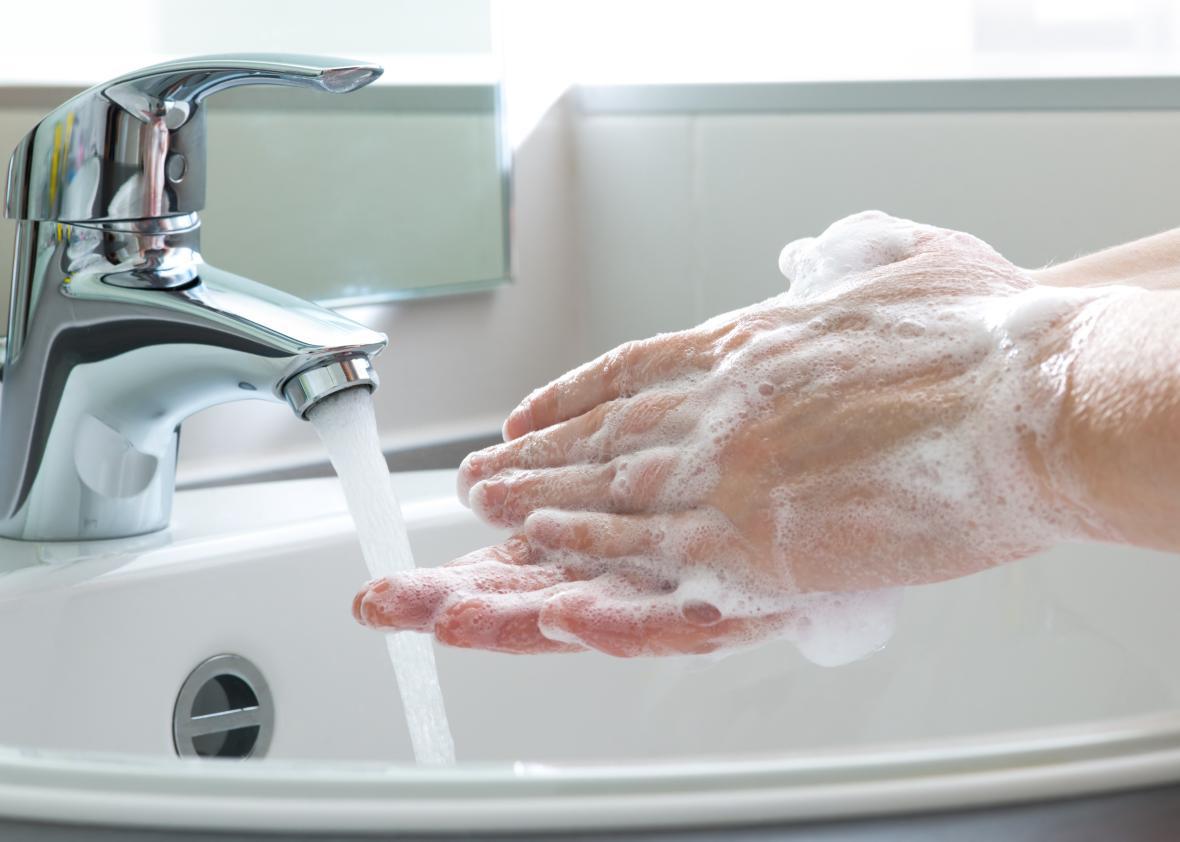This question originally appeared on Quora, the knowledge-sharing network where compelling questions are answered by people with unique insights.
Answer by Tirumalai Kamala, immunologist, Ph.D., mycobacteriology, on Quora:
Over the years, the consensus that the harm caused by antibacterial soaps outweighs the benefits has indeed coalesced. But to understand how antibacterial soaps could harm, we first need to understand how they differ from regular soaps. Also referred to as antimicrobial or antiseptic soaps, they contain chemicals that regular soaps don’t.
Many liquid soaps labeled “antibacterial” contain triclosan, a synthetic compound, specifically a phenylether or chlorinated bisphenol. While the Food and Drug Administration classifies it as a Class III drug—a compound with high solubility and low permeability—triclosan is also a pesticide. Triclocarban is another common chemical found in antibacterial soaps. Many of the concerns about triclosan also apply to triclocarban.
Since it appeared on the scene in 1972, triclosan has steadily permeated through the consumer landscape such that it’s practically ubiquitous today. Triclosan is so ubiquitous it’s even found embedded in medical devices such as catheters and sutures to prevent infections.
As for its beneficial effects, a 2015 study compared the bactericidal effects of plain versus triclosan-containing soaps in conditions that mimic hand-washing and found no difference in their ability to reduce bacterial numbers during a 20-second exposure. In other words, dubious benefit when used for routine hand washing under normal circumstances (i.e., only washing hands for a few seconds). After all, most of us don’t scrub as though preparing to do surgery every time we wash our hands.
How Triclosan Inhibits Kills Microbes
In vitro studies show triclosan can stop bacteria growing at low concentrations (bacteriostatic) and kill them at high concentrations (bactericidal). It also has some activity against some fungi and even parasites such as those that cause malaria, Plasmodium falciparum, and toxoplasmosis, Toxoplasma gondii.
Triclosan is able to target many different types of bacteria by blocking the active site for an enzyme essential for bacterial fatty acid biosynthesis. Blocking the enzyme enoyl-acyl carrier protein reductase, triclosan prevents bacteria from synthesizing fatty acids, which they need for their cell membranes and for reproduction.
Problems With Triclosan
First, triclosan selects for antibiotic resistance. As widespread triclosan use increased, labs increasingly started finding cross-resistance to antibiotics. Under selection pressure from triclosan, bacteria mutate to develop resistance mechanisms to it, which end up bestowing antibiotic resistance as well. In other words, studies show triclosan selects for antibiotic resistance.
Second, when discharged widely into the environment, triclosan can affect biomass such as algae and bacterial communities. Since it’s widely used in such a diverse array of products, triclosan ends up in soil, ground water, and municipal wastewater treatment plants. Such plants require proper functioning of microbes to break down sewage. Triclosan can inhibit methane production in wastewater plant anaerobic digesters as well as select for multidrug resistance in such bacterial communities. Triclosan’s effects persist even beyond because it’s discharged from wastewater treatment plants as effluent. Certain algae species in the vicinity of such plants have been found to be very sensitive to triclosan. Triclosan also affects bacterial communities in rivers. Potential environmental risk of triclosan becomes even more relevant in areas of water scarcity where it doesn’t get sufficiently diluted.
Third, triclosan can alter gut microbiota in fishes and rodents, potentially alter human microbiota, and even promote tumors in rodents. Triclosan could profoundly and stably alter fish gut microbiota as well as those of baby rats. While so far triclosan doesn’t appear to affect human gut microbiome, the data are far from conclusive, being based on just one study with seven volunteers. On the other hand, a study on nasal secretions from 90 healthy adults found a positive correlation between presence of triclosan in nasal secretions and nasal colonization by Staphylococcus aureus. This suggests triclosan indeed has the potential to influence and even alter human microbiota. One mouse model even found triclosan capable of promoting liver tumors.
Fourth, triclosan can disrupt hormonal function. Triclosan was found to disrupt thyroid hormone-associated gene expression and altered the rate of frog metamorphosis. It could also disrupt thyroid, estrogen, and testosterone function in rats.
Given the increasing litany of concerns about triclosan’s deleterious effects on the physiology of a wide variety of species, which may also increasingly include humans, several governments are either considering banning it or have already done so. In March 2010, the European Union banned triclosan from any products that may come into contact with food. In 2014, Minnesota banned the sale of triclosan-containing cleaning products (soaps), giving manufacturers time until early 2017 to phase them out. As of 2015, Health Canada was considering banning triclosan. It’s estimated that about 1,730 products, including cosmetics, health, and personal care products containing triclosan were available in Canada in 2011. The FDA is mulling its regulation, with a report due in September.
Do antibacterial soaps do more harm than good? originally appeared on Quora, the knowledge-sharing network where compelling questions are answered by people with unique insights. You can follow Quora on Twitter, Facebook, and Google Plus. More questions:
